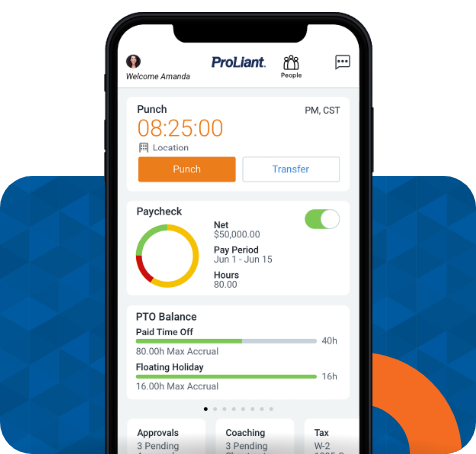In the ever-evolving landscape of business operations, efficiency is key. Nowhere is this truer than in the world of HR and payroll. These vital components of any organization are the backbone of employee satisfaction, compliance, and financial stability. However, traditional manual processes can often lead to inefficiencies, errors, and unnecessary costs. Enter automation—a game-changer revolutionizing how HR and payroll tasks are handled, offering numerous benefits for businesses of all sizes.
Let's take a closer look at those benefits.
Enhancing Efficiency and Accuracy
Manual HR and payroll processes can be quite time-consuming and prone to errors. However, by automating these tasks, workflows can be streamlined, reducing the risk of mistakes and ensuring precision in all operations. Whether it involves automating timesheet submissions, calculating deductions, or generating reports, automation allows HR teams to allocate their time more efficiently towards strategic initiatives.
Improving Compliance and Security
Staying compliant with labor laws and regulations is essential for businesses, but keeping up with ever-changing legislation can be overwhelming. Automation in HR and payroll can help ensure compliance by incorporating checks and balances. Automated systems can track employee hours, manage leave accruals, and calculate taxes, flagging potential compliance issues before they escalate. Additionally, automated systems often have robust security measures in place to protect sensitive employee data from unauthorized access or breaches.
Empowering Employee Self-Service
Empowering employees to manage their own HR and payroll needs can significantly reduce administrative burden while fostering a culture of transparency and accountability. Self-service portals allow employees to access pay stubs, update personal information, request time off, and enroll in benefits—all without having to submit requests to HR manually. By putting these tools directly into the hands of employees, organizations can streamline processes, reduce administrative overhead, and enhance overall employee satisfaction.
Driving Strategic Decision-Making
Data serves as the backbone of effective decision-making, and HR and payroll data are no exception. However, manually compiling and analyzing data can be time-consuming and lead to costly errors. With automated systems in place, data is collected and aggregated in real-time, offering HR professionals valuable insights into workforce trends, performance metrics, and financial forecasts. Equipped with this valuable information, organizations can make more informed decisions regarding talent management, resource allocation, and strategic planning, ultimately paving the way for long-term success.
Embracing the Future of HR and Payroll
In today's digital era, adopting automation is no longer just an option but a necessity for businesses striving to remain competitive. By embracing automation in HR and payroll management, organizations can boost efficiency, uphold compliance, empower their workforce, and make strategic decisions with confidence. Whether it involves simplifying daily tasks, enhancing data precision, or promoting employee self-service, the advantages of automation are unmistakable. Looking ahead, businesses that effectively implement automation will undoubtedly lead the way in their respective industries. Explore the benefits of ProLiant's Payroll Automation. If you are ready to see how automation can streamline your payroll processes and ensure compliance effortlessly, request a meeting with us today.







No Comments Yet
Let us know what you think